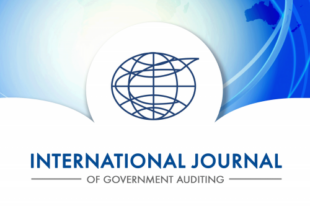SAO Latvia Seeks Ways to Increase Liabilities

by the State Audit Office of the Republic of Latvia
The State Audit Office of the Republic of Latvia was created according to the supreme audit institution model which provides recommendations for improvement to the audited entity. This model does not include any mandate to apply sanctions towards the audited entity if any infringements or discrepancies are to be found or if the auditee fails to implement the recommendations. According to the law, the State Audit Office is obliged to inform law enforcement institutions and the responsible institutions of any observed cases of violation of the law by the auditee.
It should be noted that since 2006 the State Audit Office not only provides the Prosecutor’s office and other responsible institutions with information on the revealed infringements, but also follows the progress of the legal process. If the State Audit Office believes that the information and evidence obtained during the audit had not been evaluated thoroughly in an objective manner, it may request a reassessment of the evidence and liability of the responsible civil servants and public employees.
It should be noted that the responsible civil servants and public employees have been rarely brought to account because full reassessment of the recognized illegalities by the State Audit Office was not taking place. Therefore, since 2013, more attention has been paid to the questions related to the assessment of the infringements which are found during audits. The State Audit Office provides law enforcement authorities with detailed information on the revealed infringements including documents that prove the offence. In certain cases, when signs of a possible criminal offence are being observed, the attention of the authorities is turned to the collected evidence signaling a possible wrongdoing, the civil servants and public employees which might possibly be held liable, and the corresponding law by which they might be brought to account.
Additionally, certain activities have been carried out to strengthen cooperation with law enforcement authorities and to offer them the necessary information when required. The State Audit Office organizes meetings with colleagues from the Prosecutor’s office, the State Police of Latvia and the Corruption Prevention and Combating Bureau (KNAB); additionally, seminars on the working methods of the State Audit Office are being organized. Auditors offer their expertise to law enforcement specialists by further explaining the revealed facts and by offering all the necessary information.
Since 2006, the State Audit Office has submitted materials to law enforcement institutions containing proof of infringements found in 173 audits. After carrying out the operational procedures in 87 occasions a criminal case was opened, eventually leading to prosecution of four persons in total. Two convictions took place in 2014. In cases where the State Audit Office believes the evidence obtained during the audit had not been evaluated thoroughly, complaints on the decision by the law enforcement authority are submitted. At the moment, there are 40 cases where civil servants and public employees have been held to administrative liability and penalized with a fine.
Despite the regulatory requirements of public institutions to carry out an assessment of their subordinates in case of a possible wrongdoing, the auditees rarely abided by these rules. In order to ensure that a full-fledged assessment of the infringements that had been found takes place and to ensure that they are not being repeated, in 2013 the State Audit Office proposed amendments to the law, of which the Parliament voted in favor. The amendments make it obligatory for the auditee to inform the State Audit Office on the results of the internal assessment of the actions of its subordinates. This initiative has only just begun and, quite often, not all of the found discrepancies, nor the liability of the responsible civil servants and public employees, are fully assessed. In the meantime, the State Audit Office follows the progress of these assessment procedures and if it deems it necessary it may urge the institution to carry out a reassessment, as well as contact the highest supervising institutions.
This situation however was not the case for the inter-war institution. From 1923 to 1940 the State Audit Office had the rights to enforce the institution to pay a surcharge (surcharge – an unjustifiable expenditure of public financial means which has to be repaid from the budgetary means of the auditee institution). Thus, managers were personally responsible for claiming damages caused to public assets by the civil servants and public employees – the responsible subordinates of the audited institution. The decision to apply the surcharge mechanism was made in the presence of a judge from the Court of Appeal.
Unfortunately, the before mentioned order no longer exists, however, the question of restoring a similar mandate becomes ever more topical in light of the need for the State Audit Office to find a means to ensure the recovery of squandered financial resources. Currently, auditees are reluctant to carry out all of the necessary actions to recover these resources because managers of the respective institutions do not see the subrogated recovery of the finances, which are squandered by their subordinates, as an integral part of their own liability. Unfortunately, in this aspect there are very few positive examples to be observed state-wide.
The experts of the State Audit Office have drafted amendments which soon will be submitted to the Parliament (Saeima).These would provide the State Audit Office with a mandate to uniformly decide on the recovery of squandered resources by the responsible managers, which are to be held liable for the incurred damages within their supervision caused by unlawful handling of public entity’s resources.
Despite the fact that the aforementioned legal approach has more in common with the working principles of the supreme audit institutions which function according to the principles of the court of accounts (e.g. SAI of Belgium, Portugal), in Latvia the State Audit Office can’t fully exercise the functions of a court that the constitution does not incorporate such mandate for the State Audit Office. The envisioned recovery of the caused damages would take place after finalization of the audit based on a decision by the council of the State Audit Office in the form of an administrative act within the administrative procedure (in Latvia the administrative procedure framework is based on the German model). The person may appeal the decision by turning to the Court of Appeal.
The drafted solution complies with the legal certainty (liability for illegal acts not for the lack of policies nor sudden risks or short-sighted actions), principle of proportionality (reference to mitigating circumstances and limits of liability e.g. in cases of grave negligence the fine might comprise of an amount equivalent to two annual wage equivalent), principle of subsidiarity (the State Audit Office might intervene in cases where the auditee is not fully ensuring the recovery of funds or if there are clear signs of inaction) and the legal rights of the person to be heard before the enforcement of the administrative act.
In the meantime, it is envisioned that the State Audit Office may have the right to withhold an allocation of bonuses to the employees if the audit has revealed an unlawful handling of public resources and funds in the audited institution. If the auditee would fail to implement the recommendations or if the audit would have revealed an unlawful handling with public resources and funds, the State Audit Office would hold the rights to request an assessment of the suitability of the manager of the audited institution to his/her position.





